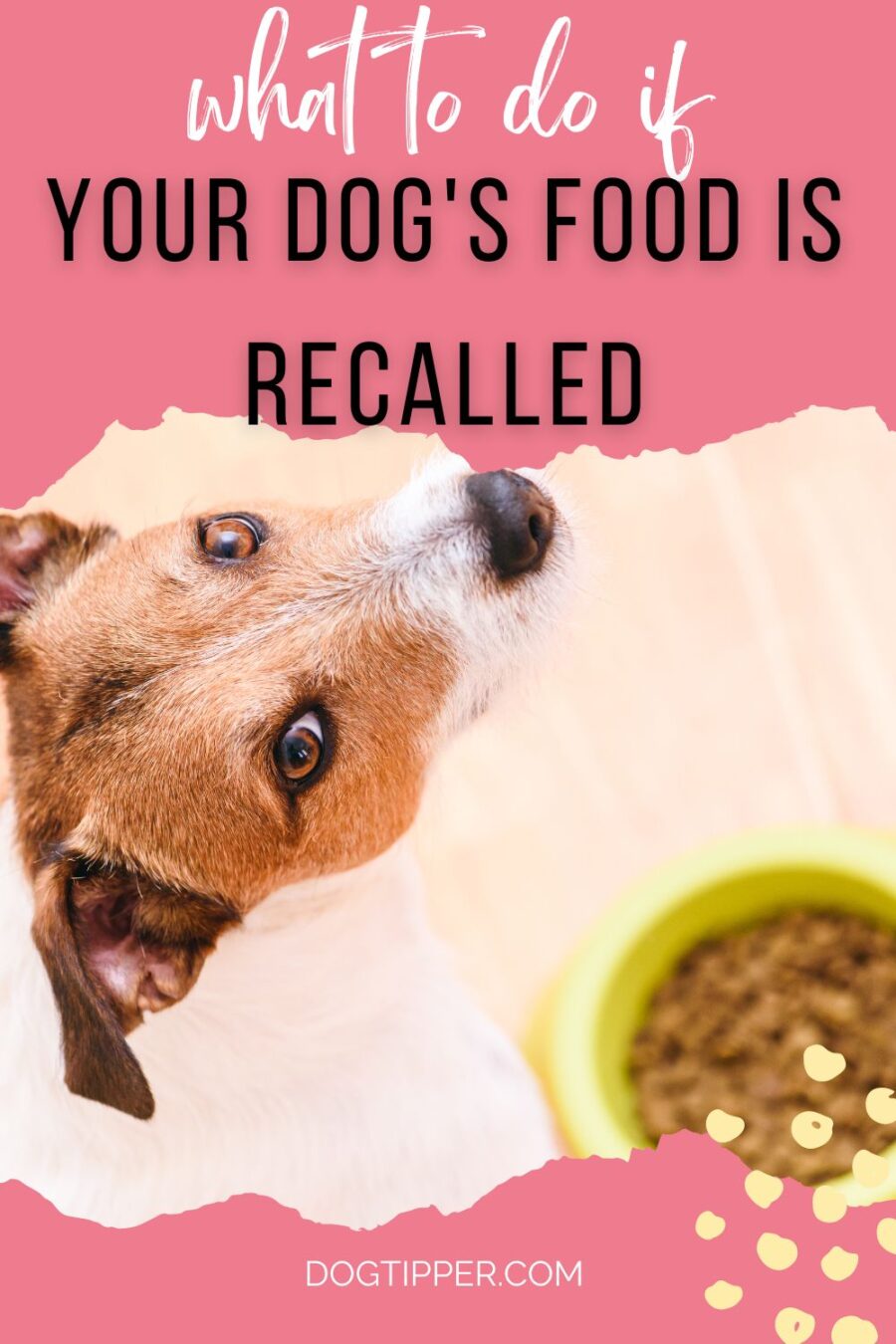We’ve all seen dog food recalls–and sometimes on our dogs’ favorite foods. What should you do if YOUR dog’s food has suddenly been recalled? We’ve got veterinary tips to keep your dog safe and get him started on another food, at least for a period of time.
How to Know if a Food Has Been Recalled
How do you know if a dog food or treat has been recalled? Perhaps you purchased the food a few months ago before it was pulled from the shelves–how would you know there might be a potential problem?
You can sign up for free emails from the FDA featuring veterinary news for consumers including pet food recalls. You can also check the official FDA Center for Veterinary Medicine Twitter account @FDAanimalhealth to get breaking news of recalls.
Veterinary Tips on Recalled Dog Food

Today we’ve got some great tips from petMD.com about what you should do if you think your dog’s food may be contaminated.
Dr. Jennifer Coates, a practicing veterinarian and petMD.com spokesperson has advice for worried pet parents. (We’ve traveled with Dr. Coates; along with being a vet, she’s a pet parent herself!)
“There’s no doubt about it, pet food recalls like this are scary,” states Dr. Coates. “Invariably, owners are halfway through feeding a bag of potentially contaminated food when they hear of the recall, which means they have to go on high alert for a week or two. In the case of Salmonella, we have to watch both pets and people in the household for vomiting, diarrhea, abdominal pain, loss of appetite, and fever.”
What to do if your pet’s food has been recalled
Dr. Coates provides the following tips to follow if you hear that your dog’s food is now under recall:
Remove the Recalled Food
If you check the labels of your pet food bag and find that it has been recalled, seal it in a plastic bag and place it in a secure garbage can.
This helps ensure that neither your pet nor an outdoor animal will eat the contaminated food and risk becoming ill.
Clean Anything That Has Come in Contact with the Food
Thoroughly wash all containers, utensils, bowls, your hands, and any other items that have come into contact with the recalled food.
If surfaces are not sanitized, bacteria can attach itself to various objects and people and live for several hours or even days.
Change Food
Switch out your pet’s food for a non-recalled brand. Talk with your veterinarian or pet food supplier to get more information on the status of the recall and to identify which brands are considered safe.
How to quickly and safely change your pet’s diet
Find a Similar Pet Food Formula
Pick a new pet food that closely matches the “old” variety. For example, if your pet was eating a lamb and rice product that was recalled, purchase another company’s lamb and rice formulation.
Read the ingredient list. If you can match up the first few ingredients, the foods will be fairly similar.
Also, review the guaranteed analysis on both labels. Avoid big changes in the percentages of protein, fat, and fiber whenever possible.
Offer Small Meals Gradually
Once you get the new food home, start by offering your pet a small meal. If he or she eats it and doesn’t develop any tummy troubles as a result, offer another small meal a few hours later.
Gradually increase the size and decrease the frequency of your offerings until you are back to your normal schedule in a day or two.
If your pet doesn’t take to the new food, pick it up and don’t offer anything (including treats) for eight hours or so. It is okay to let your pet get a little hungry, so long as you continue to offer the new food every 6-8 hours and then pick it up if it is not eaten.
Continue this pattern for 24 hours (cats) to 48 hours (dogs). If you cannot get your pet to eat the new food within these time frames, consult your veterinarian and try another formulation — but avoid frequent changes in flavor as this can promote finicky eating habits.
Go Easily Digestible
If your dog or cat has an especially sensitive stomach and you are forced to making a rapid diet change, consider switching to an easily digestible formula at the offset and then gradually mix in small amounts of the new, long-term diet a few days later.
Probiotics for dogs and cats can also reduce the chance that a pet will develop diarrhea when its diet suddenly changes.
Consult Your Veterinarian
If you can’t find a new food your pet likes or if despite all precautions the change in diet results in vomiting, diarrhea or other signs of gastrointestinal distress, talk to your veterinarian. He or she may be able to suggest other pet food brands that are less likely to cause your pet a diet-related illness.
Pin it to remember what to do if your dog’s food is recalled!

- Review: Jimmy BX7 Pro Anti-Mite Vacuum Cleaner - December 16, 2024
- 🎉 GIVEAWAY: Lord of the Pets Portrait of Your Dog! - November 26, 2024
- Review: Lord of the Pets Portraits - November 17, 2024
